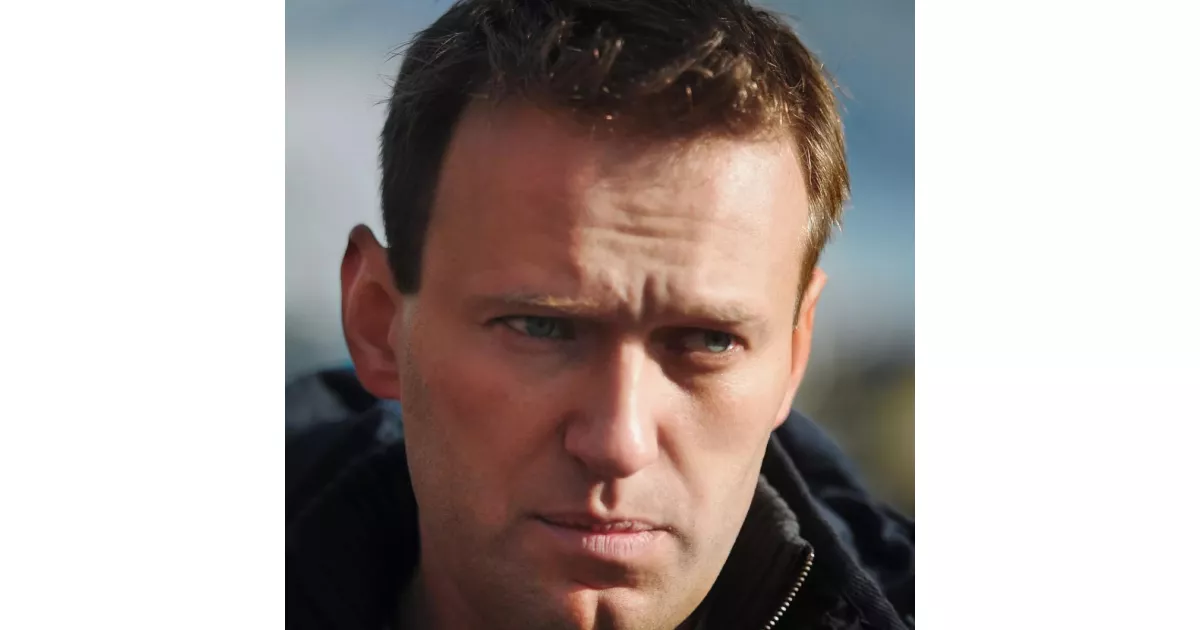Discover the defining moments in the early life of Alexei Navalny. From birth to education, explore key events.
Alexei Navalny was a prominent Russian opposition leader and anti-corruption activist. He founded the Anti-Corruption Foundation (FBK) in 2011, dedicated to investigating and exposing corruption within the Russian government. Navalny gained international recognition for his activism, including being recognized as a prisoner of conscience by Amnesty International and receiving the Sakharov Prize. However, he also faced multiple criminal charges and imprisonment, widely considered politically motivated. He was a vocal critic of Vladimir Putin and a significant figure in Russian politics despite facing constant pressure and legal challenges.
1947: Anatoly Ivanovich Navalny's birth
In 1947, Anatoly Ivanovich Navalny, Alexei Navalny's father, was born.
1954: Lyudmila Ivanovna Navalnaya's birth
In 1954, Lyudmila Ivanovna Navalnaya, Alexei Navalny's mother, was born.
1979: Soviet troops deployed to Afghanistan
In 1979, the Soviet Union deployed troops to Afghanistan.
1991: Ukraine's borders established
In 1991, Ukraine's borders were established after the collapse of the Soviet Union.
1993: Graduation from Kalininets secondary school
In 1993, Alexei Navalny graduated from Kalininets secondary school.
1994: Family basket-weaving factory
Since 1994, Anatoly and Lyudmila Navalny have privately owned and run a basket-weaving factory in Kobyakovo.
1998: Graduation with a law degree
In 1998, Alexei Navalny graduated from the Peoples' Friendship University of Russia with a law degree.
1998: Navalny lived primarily in a three-room apartment in Moscow
Starting in 1998, Navalny lived primarily in a three-room apartment in Maryino District in southeast Moscow.
2001: Graduation from the Financial University
In 2001, Alexei Navalny studied securities and exchanges at the Financial University under the Government of the Russian Federation, graduating.
2006: Participation in Russian March
Starting in 2006, Navalny participated in the "Russian march", a parade uniting Russian nationalist groups.
2007: Co-founding of NAROD and Anti-Immigration Videos
In 2007, Navalny co-founded the National Russian Liberation Movement (NAROD) and released several anti-immigration videos. In one of the videos, he compared people from the North Caucasus to cockroaches.
2010: Yale World Fellows program
In 2010, Alexei Navalny received a scholarship to the Yale World Fellows program at Yale University to study political science and world affairs.
February 2011: Navalny Calls United Russia 'Party of Crooks and Thieves'
In February 2011, Navalny called United Russia, the main Russian party, a "party of crooks and thieves" during an interview with the radio station finam.fm.
May 2011: Public Opinion on the Kirovles Case
In May 2011, according to the Levada Center, 54% of people thought the Kirovles case was due to Navalny's anti-corruption activity.
December 2011: Arrested after protests
In December 2011, Alexei Navalny was arrested on December 5th after parliamentary elections and accusations of electoral fraud in Moscow and sentenced to 15 days in jail.
December 2011: Call to unite against Putin
Upon his release on December 20, 2011, Alexei Navalny called on Russians to unite against Putin.
2011: Navalny Identifies as a Nationalist Democrat
In 2011, Navalny stated that he considered himself a "nationalist democrat". He also co-organized the 2011 "Russian march", a parade uniting Russian nationalist groups.
March 2012: Presidential election
Alexei Navalny stated that Vladimir Putin would try to claim victory in the presidential election, which was held on March 4, 2012.
March 2012: Anti-Putin rally and detention
In March 2012, Alexei Navalny helped lead an anti-Putin rally in Moscow and was detained by authorities for several hours.
May 2012: Arrested after anti-Putin rally
On May 8, 2012, Alexei Navalny was arrested after an anti-Putin rally at Clean Ponds and given a 15-day jail sentence.
2012: Parents continue to run basket-weaving factory
As of 2012, Anatoly and Lyudmila Navalny were still running their basket-weaving factory.
2012: Statements on Ukraine and Belarus
In early 2012, Navalny stated on Ukrainian TV that Ukraine and Belarus are the natural allies of Russia and that Russia should be maximally directed at integration with those countries. He clarified that he was not against Ukraine's independence or national identity and dismissed conspiracy theories about Russia invading Ukraine.
2012: Navalny Faces Embezzlement Charges
On 18 July 2012, Navalny was sentenced to a five-year prison term for embezzlement and fraud. He pulled out of the Moscow mayoral race but later vowed to stay after being freed on bail pending an appeal.
May 2013: Public Opinion on Kirovles case (May 2013)
In May 2013, 28% of people thought the Kirovles case had been caused by an actual violation of law, while 47% agreed the rationale beyond the case was his anti-corruption activity.
July 2013: Fairness of Another Criminal Case
In July 2013, according to Levada Center, 13% of people found the result of another criminal case against him was unfair and Navalny was not guilty.
September 2013: Public Opinion on Kirovles case (Sept 2013)
In September 2013, 35% of people thought the Kirovles case had been caused by an actual violation of law, while 45% agreed the rationale beyond the case was his anti-corruption activity.
October 2013: Reaction to Mayoral Election Result
In October 2013, following Navalny's second-place finish in the Moscow mayoral election, Nezavisimaya Gazeta declared, "The voting campaign turned a blogger into a politician". A Levada Center poll indicated Navalny was a potential presidential candidate. However, The Washington Post suggested the election was fair to demoralize the opposition. Putin's press secretary downplayed Navalny's result.
2013: Levada Center Poll on Navalny's Recognition
In 2013, a Levada Center poll indicated that Navalny's recognition among the Russian population stood at 37%. Of those who recognized him, 14% would support his presidential run.
2013: Comments on Ethnic Riots and Immigration
In 2013, following ethnic riots in Moscow, Navalny sympathized with the anti-immigration movement and commented on ethnic tensions and crime due to failing immigration policies. He later stated the need to educate nationalists.
March 2014: Calls for Further Sanctions After Crimea Annexation
In March 2014, after Russia's annexation of Crimea, Navalny urged further sanctions against officials and businessmen linked to Putin.
September 2014: Public Opinion on Kirovles case (Sept 2014)
In September 2014, 37% of people thought the Kirovles case had been caused by an actual violation of law, while 38% agreed the rationale beyond the case was his anti-corruption activity.
October 2014: Suggested Referendum for Crimea and Criticism of Policies in Ukraine
In October 2014, Navalny suggested that the fate of Crimea should be resolved by holding a new referendum. He also criticized Putin's policies in Ukraine, stating that they are making the "Russian world" smaller.
2014: Suspended sentence in Yves Rocher case
In 2014, Navalny received a suspended sentence in the Yves Rocher case, which he called politically motivated. This sentence was later cited by the FSIN as justification for his detention upon his return to Russia in January 2021.
2014: Timur Kuashev's death linked to unit tracking Navalny
In 2014, activist Timur Kuashev died and in January 2021, Bellingcat, The Insider, and Der Spiegel linked the unit that tracked Navalny to Kuashev's death.
January 2015: Public Opinion on Criminal Case
In January 2015, 5% of people found the result of another criminal case against him was unfair and Navalny was not guilty.
February 2015: Nemtsov Assassination Accelerates Coalition Efforts
In February 2015, Nemtsov's murder accelerated work on a coalition involving Navalny and Khodorkovsky. On 17 April, Navalny declared an agreement of formation of a new electoral bloc between Progress Party and RPR-PARNAS.
October 2015: Navalny Pays Compensation in Yves Rocher Case
In October 2015, Alexei Navalny's lawyer announced that he willingly paid 2.9 million rubles toward the 4.4 million rubles compensation required in the Yves Rocher case. He requested an installment plan for the remainder, which was granted, although the term was shortened. This action was taken despite Navalny's claim that the case was a frame-up, to potentially influence his brother's parole.
2015: Ruslan Magomedragimov's death linked to unit tracking Navalny
In 2015, activist Ruslan Magomedragimov died and in January 2021, Bellingcat, The Insider, and Der Spiegel linked the unit that tracked Navalny to Magomedragimov's death.
2016: Deemphasis on Past Statements on Immigration
Since 2016, Navalny deemphasized his past statements on immigration.
April 2017: Levada Center Poll on Presidential Election
A Levada Center survey released on April 6, 2017, showed that Navalny's recognition among the Russian population was at 55%. Among those who recognised him, 4% would definitely vote for him and 14% would probably vote for him in the presidential election.
April 2017: Navalny Attacked with Green Dye
On 27 April 2017, Navalny was attacked outside his office in the Anti-Corruption Foundation and sprayed with green dye, resulting in a chemical burn to his right eye and reportedly causing significant vision loss. Navalny accused the Kremlin of orchestrating the attack.
July 2017: Navalny Released from Jail
On 27 July 2017, Navalny was released from jail after serving 25 days for participating in illegal protests in Moscow.
October 2017: Navalny Sentenced to Jail for Protest Calls
On 2 October 2017, Navalny was sentenced to 20 days in jail for calling for participation in protests without state approval.
2017: Support for Legalizing Same-Sex Marriage
In 2017, Leonid Volkov, Navalny's chief of staff, announced that Navalny's team supports the legalisation of same-sex marriage.
2017: Recognition of Transnistria's Independence
In 2017, Navalny argued that Russia should recognize the independence of Moldova's breakaway region of Transnistria, reiterating a position he also held in 2008.
November 2018: Grand Chamber upheld ECHR decision on Navalny's conviction
In November 2018, the Grand Chamber upheld the European Court of Human Rights' decision regarding Alexei Navalny's conviction. This re-affirmed the initial ruling that the conviction was based on an unforeseeable application of criminal law, marking a significant challenge to the Russian legal system.
2018: Comments on the Autonomous Orthodox Church of Ukraine
In 2018, after the establishment of the autonomous Orthodox Church of Ukraine, Navalny tweeted that "What took centuries to create has been destroyed by Putin and his idiots in four years ... Putin is the enemy of the Russian World."
August 2019: Assassination of Zelimkhan Khangoshvili
In August 2019, Vadim Krasikov assassinated Zelimkhan Khangoshvili, a Georgian national and ethnic Chechen, in Berlin's Tiergarten Park. Khangoshvili had opposed Vladimir Putin's regime with violence.
September 2019: Navalny's daughter begins studies at Stanford University
In September 2019, Navalny's daughter Dasha began undergraduate studies at Stanford University.
2019: Nikita Isayev's death linked to unit tracking Navalny
In 2019, politician Nikita Isayev died and in January 2021, Bellingcat, The Insider, and Der Spiegel linked the unit that tracked Navalny to Isayev's death.
June 2020: Support for Black Lives Matter Protests
In June 2020, Navalny voiced his support for the Black Lives Matter protests against racism.
August 2020: Poisoned with Novichok
In August 2020, Alexei Navalny was hospitalized after being severely poisoned with a Novichok nerve agent and was medically evacuated to Berlin.
August 2020: Levada Center Poll on Trust in Politicians
In August 2020, a Levada Center poll indicated that 4% of respondents trusted Navalny the most (out of a list of politicians), an increase from 2% in the previous month.
August 2020: Navalny Falls Ill on Flight and is Hospitalized
On August 20, 2020, Alexei Navalny became ill during a flight from Tomsk to Moscow, leading to an emergency landing in Omsk. He was hospitalized in the Emergency City Clinical Hospital No. 1. His condition changed rapidly on the plane, and he was heard screaming loudly. He later recounted that he was screaming not from the pain, but from the knowledge that he was dying.
September 2020: Levada Center Poll on Approval of Navalny's Activities
According to polls conducted by the Levada Center in September 2020, 20% of Russians approved of Navalny's activities, 50% disapproved, and 18% had never heard of him.
December 2020: Navalny Releases Video of Call with Alleged Chemical Weapons Expert
On December 21, 2020, Alexei Navalny released a video where he impersonated a Russian security official and spoke with a man identified as Konstantin Kudryavtsev, an alleged chemical weapons expert. During the call, Kudryavtsev revealed that the poison had been placed on Navalny's clothing, particularly his underwear, and that Navalny would have died without the emergency landing and quick response from medical personnel.
January 2021: Detained upon return to Russia
In January 2021, Alexei Navalny returned to Russia and was immediately detained on accusations of violating parole conditions.
January 2021: Investigation links unit tracking Navalny to other deaths
In January 2021, Bellingcat, The Insider, and Der Spiegel linked the unit that tracked Alexei Navalny to the deaths of activists Timur Kuashev in 2014 and Ruslan Magomedragimov in 2015, and politician Nikita Isayev in 2019.
January 2021: Navalny Returns to Russia and is Detained
On January 17, 2021, Alexei Navalny returned to Russia from Germany on Pobeda airlines flight DP936. The flight was diverted to Sheremetyevo International Airport, and he was detained at passport control. The Federal Penitentiary Service (FSIN) confirmed his detention for violating probation terms and stated he would remain in custody until a court hearing.
January 2021: Court Orders Detention of Navalny and Investigation Against Putin is Published
On January 18, 2021, a court ordered the detention of Alexei Navalny until February 15 for violating his parole. A makeshift court was set up in the police station where Navalny was held. On January 19, while in jail, Navalny and the FBK published an investigation accusing President Vladimir Putin of corruption. This arrest and the investigation resulted in mass protests across Russia starting on January 23, 2021.
January 2021: Navalny's lawyers apply for 'interim measure' for his release
On January 20, 2021, Alexei Navalny's lawyers applied to the European Court of Human Rights for an 'interim measure' for his release following his detention. The application was made in light of the risk to Navalny's life.
February 2021: ECHR Orders Navalny's Release, Russia Refuses
On February 16, 2021, the European Court of Human Rights (ECHR) ruled that the Russian government should immediately release Alexei Navalny, citing risks to his life. However, Russian officials refused to comply, calling it a flagrant intervention. Later in February, a Moscow court rejected Navalny's appeal but reduced his sentence by six weeks. Another court convicted Navalny on slander charges and fined him 850,000 rubles ($11,541).
February 2021: Navalny's Suspended Sentence Replaced with Prison Sentence
On February 2, 2021, a Moscow court replaced Alexei Navalny's three-and-a-half-year suspended sentence with a prison sentence, minus time spent under house arrest, resulting in over 2+1⁄2 years in a corrective labor colony. The verdict was widely condemned internationally. After the verdict, protests were held in various Russian cities and met with police crackdown.
February 2021: Navalny Arrives at Pokrov Correctional Colony
On February 28, 2021, it was reported that Alexei Navalny had recently arrived at the Pokrov correctional colony in Vladimir Oblast. This is the same prison where Dmitry Demushkin and Konstantin Kotov were also jailed.
March 2021: Navalny Accuses Authorities of Torture and Sleep Deprivation
In March 2021, Alexei Navalny formally accused authorities of torture by depriving him of sleep, arguing that he was being woken up eight times a night. He also reported health problems, including a loss of sensation in his spine and legs, and was denied access to a civilian physician. On March 31, he announced a hunger strike to demand proper medical treatment.
April 2021: Moscow prosecutor requests to designate organizations linked to Navalny as extremist
On 16 April 2021, the Moscow prosecutor office requested the Moscow City Court to designate organizations linked to Alexei Navalny, including the Anti-Corruption Foundation and his headquarters, as extremist, claiming they destabilize the socio-political situation. Leonid Volkov responded that Putin had announced full-scale mass political repression.
April 2021: Navalny in immediate need of medical attention
On 17 April 2021, it was reported that Alexei Navalny was in immediate need of medical attention due to an increased risk of cardiac arrest or kidney failure. Doctors requested immediate access, and politicians signed an open letter to Putin demanding an independent doctor visit Navalny and a review of his criminal cases, holding Putin personally responsible for Navalny's life.
April 2021: Navalny moved to hospital for convicts
On 19 April 2021, Alexei Navalny was moved from prison to a hospital for convicts for "vitamin therapy". On 23 April 2021, Navalny announced he was ending his hunger strike after partially meeting his demands.
April 2021: Moscow's prosecutor office orders Navalny's network to cease activities
On 26 April 2021, Moscow's prosecutor office ordered Alexei Navalny's network of regional offices, including the FBK, to cease activities pending a court ruling on whether to designate them as extremist. The move was condemned by Germany and Amnesty International.
April 2021: Navalny's team announces dissolution of political network
On 29 April 2021, Alexei Navalny's team announced that the political network would be dissolved in advance of a court ruling expected to designate it as extremist. On the same day, a new criminal case was opened against Navalny. The leader of Team 29, Ivan Pavlov, was detained in Moscow.
April 2021: Doctors and Correspondents Arrested While Trying to Visit Navalny
On April 6, 2021, six doctors, including Alexei Navalny's personal physician, Anastasia Vasilyeva, and two CNN correspondents, were arrested outside the prison while trying to visit Navalny, whose health had significantly deteriorated. On April 7, Navalny's attorneys claimed he suffered two spinal disc herniations and lost feeling in his hands, prompting criticism from the U.S. government. Agnès Callamard of Amnesty International accused Vladimir Putin of slowly killing Navalny through torture. He also complained about not being allowed to read newspapers or books, including the Quran.
June 2021: Navalny's newspapers censored
As of June 2021, Alexei Navalny's newspapers were still being censored as articles were cut out.
June 2021: Navalny's political network designated as extremist and liquidated
On 9 June 2021, Alexei Navalny's political network, including his headquarters and the FBK, were designated as extremist organizations and liquidated by the Moscow City Court. The Anti-Corruption Foundation was recognized as an extremist organization and its assets were confiscated.
August 2021: Court upholds decision to designate Navalny's network as extremist
On 4 August 2021, the First Court of Appeal of General Jurisdiction in Moscow upheld the decision of the lower court, and the decision to designate Alexei Navalny's network as extremist entered into force that day.
October 2021: Navalny designated as terrorist and extremist by prison commission
In October 2021, Alexei Navalny said that the Russian prison commission designated him as a "terrorist" and "extremist", but that he was no longer regarded as a flight risk.
December 2021: Cassational appeal filed regarding extremist designation
On 28 December 2021, the Anti-Corruption Foundation, the Citizens' Rights Protection Foundation and 18 individuals, including Alexei Navalny, filed a cassational appeal with the Second Court of Cassation of General Jurisdiction.
January 2022: Russia adds Navalny and aides to terrorists and extremists list
In January 2022, Russia added Alexei Navalny and his aides to the "terrorists and extremists" list.
February 2022: Navalny faces new trial on fraud and contempt of court charges
In February 2022, Alexei Navalny faced an additional 10 to 15 years in prison in a new trial on fraud and contempt of court charges for allegedly stealing $4.7m of donations and insulting a judge. Amnesty International called the charges "arbitrary" and "politically motivated".
February 2022: Witness refuses to testify against Navalny; Navalny condemns invasion of Ukraine
On 21 February 2022, prosecution witness Fyodor Gorozhanko refused to testify against Alexei Navalny in his trial. On 24 February 2022, Navalny condemned the Russian invasion of Ukraine during his trial, calling it a distraction from internal problems.
March 2022: Sentenced to nine years in prison
In March 2022, Alexei Navalny was sentenced to an additional nine years in prison after being found guilty of embezzlement and contempt of court in a new trial.
March 2022: Navalny found guilty and sentenced to 9 years in prison
On 22 March 2022, Alexei Navalny was found guilty of contempt of court and embezzlement and given a 9-year sentence in a maximum-security prison and ordered to pay a fine of 1.2 million rubles. Amnesty International described the trial as a "sham".
March 2022: Court rejects appeals and upholds extremist judgements
On 25 March 2022, the Second Court of Cassation rejected all the appeals and upheld the judgements of the lower courts regarding the extremist designation.
May 2022: Navalny opens appeal process against sentence
On 17 May 2022, Alexei Navalny opened an appeal process against his sentence. On 24 May, the Moscow City Court upheld the judgement of the court of first instance.
May 2022: Navalny notified about new extremism charges
On 31 May 2022, Alexei Navalny said he was officially notified about new charges of extremism brought against him, facing up to an additional 15 years in prison.
June 2022: Navalny transferred to maximum security prison
In mid-June 2022, Alexei Navalny was transferred to the maximum security prison IK-6 in Melekhovo, Vladimir Oblast.
June 2022: Navalny loses appeal on extremist designation
On 28 June 2022, Alexei Navalny lost his appeal on being designated as "extremist" and "terrorist".
July 2022: Navalny relaunches Anti-Corruption Foundation as international organisation
On 11 July 2022, Alexei Navalny announced the relaunch of his Anti-Corruption Foundation as an international organisation. The first contribution would be the Sakharov Prize ($50,000) that was awarded to him.
September 2022: Navalny placed in solitary confinement and attorney-client privilege revoked
On 7 September 2022, Alexei Navalny said that he had been placed in solitary confinement for the fourth time in just over a month. On 8 September 2022, he said his attorney-client privilege was revoked.
October 2022: Navalny's allies relaunch regional political network
On 4 October 2022, allies of Alexei Navalny said they were relaunching his regional political network to fight the mobilization and war.
November 2022: Navalny in permanent solitary confinement
On 17 November 2022, Alexei Navalny stated that he was now in permanent solitary confinement.
January 2023: Doctors demand authorities stop abusing Navalny
On 10 January 2023, over 400 doctors in Russia signed an open letter to president Putin demanding that prison authorities "stop abusing" Alexei Navalny. Less than a month later, Navalny was transferred to an isolated punishment cell.
August 2023: Received 19-year sentence
In August 2023, Alexei Navalny received another sentence of 19 years on extremism charges.
August 2023: Navalny sentenced to additional 19 years in prison
On 4 August 2023, Alexei Navalny was sentenced to an additional 19 years in a "special regime" colony on charges including publicly inciting extremist activity. According to his lawyers, following this latest sentencing, Navalny would have been released in December 2038.
October 2023: Arrest of Navalny's Lawyers
In October 2023, three of Navalny's lawyers (Igor Sergunin, Alexei Liptser, and Vadim Kobzev) were arrested and charged with "participation in an extremist community" for conveying his messages from the penal colony. This crime carries a punishment of up to 6 years in prison.
October 2023: Navalny's lawyers detained on extremism charges
On 13 October 2023, three of Alexei Navalny's lawyers were detained on charges about participating in an "extremist group".
December 2023: Missing from prison and re-emergence
In December 2023, Alexei Navalny went missing from prison for almost three weeks before re-emerging in an Arctic Circle corrective colony.
December 2023: Navalny's whereabouts unknown after being removed from penal colony
On 11 December 2023, Alexei Navalny's aides revealed that they had not had any contact with Navalny for six days after he was removed from the penal colony. On 25 December 2023 he was discovered to be in the IK-3 "special regime" colony, known as "Polar Wolf", in Kharp in the Yamalo-Nenets Autonomous Okrug.
February 2024: Alexei Navalny's death
Alexei Anatolyevich Navalny died on February 16, 2024. He was a Russian opposition leader, anti-corruption activist, and political prisoner.
February 2024: Navalny's Death in Prison
On February 16, 2024, the Federal Penitentiary Service announced Alexei Navalny's death in prison in Yamalo-Nenets after he fell unwell following a walk. His death was confirmed by paramedics. His spokeswoman confirmed his death the following day and demanded his body to be returned to his family. His body was returned to his mother on February 24, 2024. On February 27, 2024, Vasily Dubkov, a lawyer for Navalny, was briefly detained in Moscow.
May 2024: Navalny and Gershkovich Almost Exchanged
In May 2024, DW News reported that Navalny and Evan Gershkovich had almost been exchanged in early 2024 for Vadim Krasikov, who assassinated Zelimkhan Khangoshvili in August 2019.
October 2024: Posthumous Publication of 'Patriot'
On October 22, 2024, Navalny's memoir, "Patriot", which he began writing in Germany after being poisoned, was published posthumously by his wife, Yulia Navalnaya.
2024: Death in prison
In 2024, the Russian prison service reported that Alexei Navalny had died, sparking protests in Russia and other countries.
2026: UK claims Navalny was poisoned with dart frog toxin
During the 2026 Munich Security Conference, the UK said that Alexei Navalny was poisoned with dart frog toxin.
December 2038: Projected Release Date
According to his lawyers, following his latest sentencing on August 4, 2023, Navalny would have been released in December 2038.
Mentioned in this timeline

Vladimir Vladimirovich Putin is a Russian politician and former intelligence...
Ukraine is a country in Eastern Europe the second-largest on...
The Union of Soviet Socialist Republics USSR existed from to...
Germany officially the Federal Republic of Germany is a nation...
Syria officially the Syrian Arab Republic is a West Asian...
Belarus is a landlocked country in Eastern Europe bordered by...
Trending
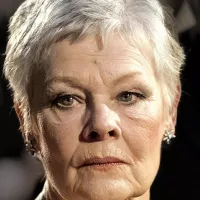
35 minutes ago Rosamund Pike recalls Judi Dench's 'naughty' side, calling her a 'mischief maker'.

2 hours ago Declan Rice's behavior scrutinized after derby win; Scholes deems him too emotional.
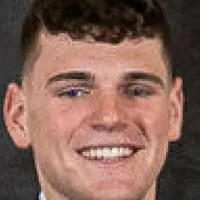
2 hours ago Donovan Clingan shines for Trail Blazers: Draft prospect improves shooting and raises questions.
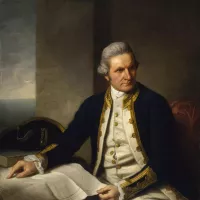
35 minutes ago James Cook and Dion Dawkins to appear at Dick’s House of Sport opening.

2 hours ago Shakira's Mexico City Concert: Security, Tickets, and Traffic Updates
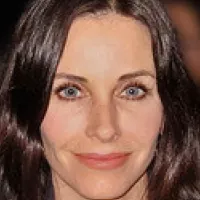
2 hours ago Courteney Cox wears 90s jeans, stays overnight with on-screen husband Greg Kinnear.
Popular

Jesse Jackson is an American civil rights activist politician and...

Susan Rice is an American diplomat and public official prominent...

Barack Obama the th U S President - was the...

Michael Joseph Jackson the King of Pop was a highly...

XXXTentacion born Jahseh Dwayne Ricardo Onfroy was a controversial yet...

Bernie Sanders is a prominent American politician currently serving as...
